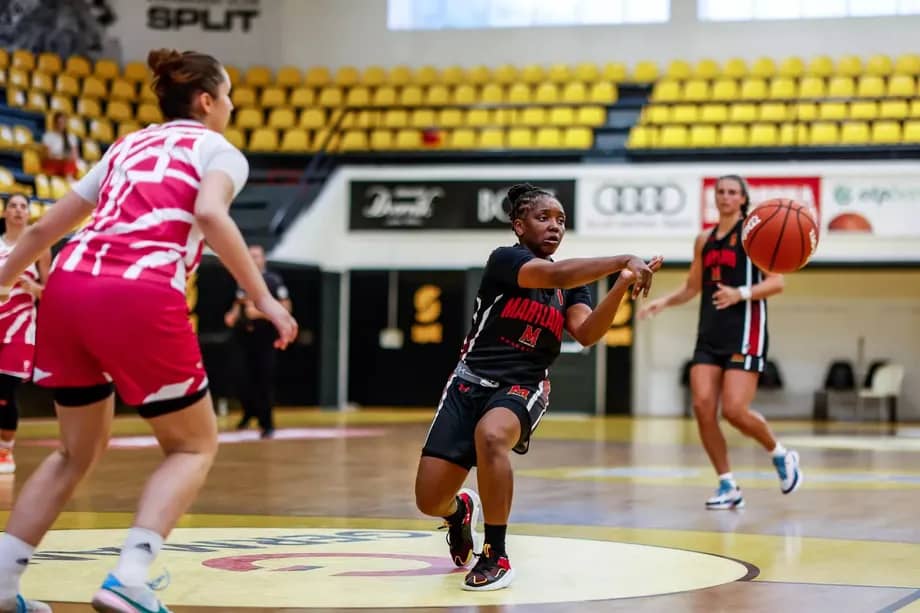
The ninth-ranked player in the world right now, Ons Jabeur, has urged the French Open organizers to do more to highlight women’s tennis during the tournament’s prime time periods. Jabeur believes that despite attempts, there is still a big difference between the men’s and women’s schedules for the highly sought-after night sessions.
Disparity in Night Time Scheduling
Jabeur’s remarks draw attention to a bigger problem at the French Open and perhaps in tennis generally: the underrepresentation of women’s matches during prime time. Women’s singles matches were played in just two of the twenty night sessions in the 2022 and 2023 championships. In 2024, the first four days of the night sessions will feature just men’s singles matches, maintaining the skewed distribution. These spots have been occupied by well-known athletes including Andy Murray, Jannik Sinner, and Novak Djokovic, highlighting the tournament’s bias for male competitors during these intensely watched periods.
The Importance of Prime Time Exposure
Sporting events must be scheduled at prime time to maximize visibility and promotion. Evening matches typically draw bigger crowds for both live and broadcast viewing. enhanced interest in the sport, more money made by advertising, and bigger chances for the participating athletes can all result from this enhanced exposure. The French Open unintentionally reinforces the false belief that men’s tennis is more significant or interesting than women’s tennis by mostly scheduling men’s matches during certain times.
Notable Women’s Matches Overlooked
Some of the most interesting matches in women’s tennis, according to Jabeur, aren’t getting enough attention. For instance, Sinner’s match versus French veteran Richard Gasquet was slated for prime time, while the much awaited match between world number one Iga Swiatek and four-time Grand Slam champion Naomi Osaka was set for the afternoon. Jabeur and other supporters of women’s matches believing they might attract a sizable audience if given the same opportunity as men’s matches were disappointed by this decision.
Support from Fellow Players
Jabeur’s criticism is not unique. The three-time major champion Andy Murray showed his support on social media by drawing attention to the squandered chance to screen the Swiatek-Osaka match during a night session. Murray’s support demonstrates how male players as well as female athletes understand the importance of gender equity in sports scheduling.
The Role of Amelie Mauresmo
Tournament director Amelie Mauresmo, a former world number one, has been acknowledged by Jabeur for her efforts to balance the scheduling. Mauresmo’s position as a former top player gives her unique insight into the importance of fair representation. However, as Jabeur noted, significant changes take time. The hope is that Mauresmo’s influence will gradually lead to a more balanced approach in the allocation of prime time slots.
The Broader Implications
Jabeur’s advocacy goes beyond just tennis; it is part of a larger movement to promote women’s sports more generally. Increased visibility in prime time can have a ripple effect, encouraging more young girls to take up sports, increasing the popularity of women’s competitions, and ensuring that female athletes receive the recognition and financial rewards they deserve.
Final Thought
Jabeur is dedicated to advocating for change and is still upbeat about the future. Her call to action serves as a helpful reminder that despite recent advancements, much work remains. We anticipate seeing a more equal representation of women’s matches in prime time slots at the French Open and other big athletic events with sustained player lobbying and support from tournament organizers.
The discussion that Ons Jabeur started on the differences in schedule at the French Open highlights a larger problem with gender parity in sports. Even if this disparity is being addressed, it appears that there is still more work to be done, based on the French Open’s current scheduling. Athletes such as Jabeur, by persisting in their advocacy for increased prime time opportunities for women’s matches, are pivotal in propelling the necessary change to attain full equality in sports.
This Article was edited by Anmol, author @09sports.com
Source – France24
- NFL player accused of sexual assault on London flight – Reports
- Who Is Patrick Mahomes’ Real Mother According to Google 2024?
- Messi, Suarez, and Busquets to Miss Inter Miami’s Match Against Vancouver Whitecaps Due to Hectic Schedule
- Nick Diaz Returns to the Octagon, Tony Ferguson Moves Up to Welterweight at UFC Abu Dhabi
- Cori Geoghan Takes Helm as Spring Lake Girls Basketball Coach


